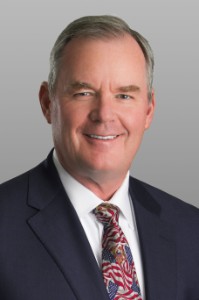Private Wealth 2025
USA – Nevada
1. Tax
1.1 Tax Regimes
Nevada does not impose income taxes or gift, estate, inheritance, or generation-skipping transfer taxes.
1.2 Exemptions
Not applicable.
1.3 Income Tax Planning
Not applicable.
1.4 Taxation of Real Estate Owned by Non-Residents
Nevada has a cap on real estate property taxes of 3% for the primary home of a resident of the state. There is no other differential tax treatment for real estate owned by non-residents and non-citizens in Nevada. Generally, Nevada imposes property taxes and transfer taxes in the same manner for non-residents and non-citizens as are applied to residents and citizens.
1.5 Stability of Tax Laws
Nevada has never imposed income taxes or gift, estate, inheritance, or generation-skipping transfer taxes. Any attempts to introduce these types of taxes have been repeatedly rejected. Nevada produces significant gaming revenues and relies on gaming revenues, mining operations, sales taxes, property taxes, and business taxes to fund its operations.
1.6 Transparency and Increased Global Reporting
Not applicable.
2. Succession
2.1 Cultural Considerations in Succession Planning
Nevada is often considered a melting pot in terms of culture – particularly in urban areas such as Las Vegas and Reno. Its diverse population reflects a blend of ethnicities, nationalities and traditions, shaped by factors such as tourism and hospitality, a large immigrant population, a transient population, and notable Native American influence.
2.2 International Planning
Not applicable.
2.3 Forced Heirship Laws
Not applicable.
2.4 Marital Property
Nevada is a community property state. All assets and property interests acquired and/or earned during a marriage are presumed to be community property, meaning that each spouse has an equal and undivided interest in said property. Generally, one spouse cannot sell community property without the other spouse’s consent.
Premarital agreements are enforceable in Nevada. Premarital agreements are governed by the Uniform Premarital Agreement Act under NRS Chapter 123A.
In order to establish a valid and enforceable premarital agreement, the agreement must be in writing and signed by both parties before marriage; both individuals must sign freely, without duress, coercion, misrepresentation or undue pressure; before signing, each party must receive a fair and reasonable disclosure of the other’s assets, liabilities and financial obligations; the agreement must not be unconscionable at the time of signature (ie, it must not be extremely one-sided or unfair); and each party is advised to have independent legal counsel.
2.5 Transfer of Property
There is no effect on cost basis for lifetime transfers of property in Nevada. Pursuant to federal law, in most circumstances, an individual’s interest in property receives a stepped-up cost basis to the fair market value of said property as of the individual’s death. Because Nevada is a community property state, any property that a married couple owns as community property at death will receive a stepped-up cost basis in the entirety of the property at the first spouse’s death, including a stepped-up cost basis in the surviving spouse’s interest in the property.
2.6 Transfer of Assets: Vehicle and Planning Mechanisms
Nevada leads the nation when it comes to estate planning, setting the standard for other states to follow. Its robust statutory framework and favourable case law have positioned the state as the premier jurisdiction for ironclad generational wealth protection in the US.
Key advantages that make Nevada a top choice for long-term estate planning and wealth preservation include the following.
- Extended trust duration – Nevada allows trusts to last up to 365 years, permitting long-term preservation and management of wealth across multiple generations.
- Significant tax-planning benefits – Nevada trusts can be structured to take full advantage of federal gift, estate, and generation-skipping transfer (GST) tax exemptions. Properly established Nevada Dynasty Trusts may eliminate the application of these taxes for future generations, allowing beneficiaries to inherit assets free of transfer tax liabilities.
- No state income tax on trusts – Nevada is one of the few states with no state income tax. Trusts domiciled and administered entirely in Nevada may circumvent state income taxation altogether.
- Flexibility in trust administration – progressive trust laws in Nevada allow for modifications to the administrative provisions of irrevocable trusts, providing the flexibility to adapt to future changes in tax laws and other legal developments.
- Superior creditor protection – some of the strongest asset-protection laws in the country are offered by the state of Nevada. Its legal precedent supports upholding trusts against creditor claims, helping to shield wealth for the benefit of future generations.
2.7 Transfer of Assets: Digital Assets
The succession of digital assets is typically governed and approved by the probate courts in Nevada. However, Nevada law also provides certain mechanisms for transfer on death by operation of law that can help pass digital assets to heirs outside of the probate court’s purview.
3. Trusts, Foundations and Similar Entities
3.1 Types of Trusts, Foundations or Similar Entities
Common types of trusts used for tax and estate planning purposes in Nevada include the following.
- The Revocable Living Trust – primarily established for probate court avoidance and future generational planning.
- The Self-Settled Spendthrift Trust (also known as the Nevada Asset Protection Trust) – primarily established for creditor-protection purposes to shield assets from an individual’s creditors during their lifetime.
- The Dynasty Trust – mainlyestablished to take advantage of federal gift, estate and generation-skipping-transfer tax benefits in a manner that can help limit tax liabilities, sometimes eliminating them. With a Nevada Dynasty Trust, assets that are subject to federal gift, estate and GST taxation (or application of the federal estate tax lifetime exemption) initially upon transfer to a trust can eliminate application of said taxes for future generations if a trust is property structured, allowing many generations to enjoy gifted assets inheritance tax free.
- Private foundations – Nevada statutes create significant flexibility relating to the establishment and governing provisions private foundations. Further, Nevada’s governmental involvement and oversight of private foundations is minimal.
- Charitable trusts – Nevada’s statutes allow charitable trusts, such as charitable remainder and charitable lead trusts, to be designed with unmatched flexibility.
3.2 Recognition of Trusts
Nevada leads the nation when it comes to estate planning, setting the standard for other states to follow. Its robust statutory framework and favourable case law have positioned the state as the premier jurisdiction for ironclad generational wealth protection in the US.
Key advantages that make Nevada a top choice for long-term estate planning and wealth preservation include the following.
- Extended trust duration – Nevada allows trusts to last up to 365 years, permitting long-term preservation and management of wealth across multiple generations.
- Significant tax-planning benefits – Nevada trusts can be structured to take full advantage of federal gift, estate, and GST tax exemptions. Properly established Nevada Dynasty Trusts may eliminate the application of these taxes for future generations, allowing beneficiaries to inherit assets free of transfer tax liabilities.
- No state income tax on trusts – Nevada is one of the few states with no state income tax. Trusts domiciled and administered entirely in Nevada may circumvent state income taxation altogether.
- Flexibility in trust administration – progressive trust laws in Nevada allow for modifications to the administrative provisions of irrevocable trusts, providing the flexibility to adapt to future changes in tax laws and other legal developments.
- Superior creditor protection – some of the strongest asset-protection laws in the country are offered by the state of Nevada. Its legal precedent supports upholding trusts against creditor claims, helping to shield wealth for the benefit of future generations.
3.3 Tax Considerations: Fiduciary or Beneficiary Designation
Generally, there are not any tax consequences specific to Nevada that may arise if a citizen or resident in the state serves as a fiduciary or is a beneficiary of a foreign trust, foundation or similar entity.
3.4 Exercising Control Over Irrevocable Planning Vehicles
Nevada law allows for the modification of irrevocable trusts through multiple different mechanisms, including modification/reformation through court approval, modification by way of non-judicial settlement among parties interested in the trust, and via a process called “decanting,” through which a trustee with discretion or authority to distribute trust income or principal to or for a beneficiary of the trust may exercise such discretion or authority by appointing the property subject to such discretion or authority in favour of a second trust – provided that the second trust may only have as beneficiaries one or more of the beneficiaries of the original trust to or for whom a distribution of income or principal may be made from the original trust.
4. Family Business Planning
4.1 Asset Protection
Nevada law provides for the creation of Self-Settled Spendthrift Trusts (also known as the Nevada Asset Protection Trusts), which are primarily established for creditor-protection purposes to shield assets from an individual’s creditors during their lifetime.
In addition, Nevada law provides protection for business owners through various types of entities such as limited liability companies, corporations, limited partnerships, limited liability limited partnerships (LLLPs), restricted limited liability companies, etc.
A well-designed structure that incorporates both self-settled spendthrift trusts and limited liability business entities can provide maximum asset protection.
4.2 Succession Planning
Dynasty Trust planning is the most popular tool for passing wealth and control from generation to generation. Dynasty Trusts are primarily established to take advantage of federal gift, estate and generation-skipping transfer-tax benefits in a manner that can help limit tax liabilities, sometimes eliminating them. With a Nevada Dynasty Trust, assets that are subject to federal gift, estate and generation-skipping transfer taxation (or application of the federal estate tax lifetime exemption) initially upon transfer to a trust can eliminate application of said taxes for future generations if a trust is property structured, allowing many generations to enjoy gifted assets inheritance-tax free. Dynasty Trusts can also be designed to layer control in almost unlimited ways, through trusteeship, trust protectors and trust advisors. These layers can include third parties who can mediate family disputes and/or modify trust dispositive provisions, including dividing trusts, limiting problem beneficiary’s access and eliminating a beneficiary’s rights to force distributions.
4.3 Transfer of Partial Interest
Nevada’s laws allow for incredible flexibility in creating interests that are subject to conditions that allow for maximum discounts on lack of marketability and control. The state’s corporate statutes have been designed to allow for multiple restrictions to be built into interests, including restricted limited-liability companies, allowing for voting and non-voting interests, and delayed or conditional vesting of interests.
5. Wealth Disputes
5.1 Trends Driving Disputes
Nevada’s attractive estate, trust, family offices and creditor-protection laws have increased trust-related disputes, which include, but are not limited to, the following.
- Validity of estate planning documents – disputes may arise due to questions surrounding a settlor’s capacity, susceptibility to undue influence, fraud or mistake.
- Unclear terms – unclear or ambiguous language contained within estate planning documents can lead to disputes regarding interpretation of said documents.
- Failure to communicate – communication between a fiduciary and beneficiaries is key, and failure to do communicate clearly, including failing to account for or produce other necessary documentation and information may lead to disputes.
- Estate plan does not achieve intended goal – potential flaws in planning may lead to disputes.
Such disputes can be resolved informally through a non-judicial settlement agreement prior to the initiation of litigation; however, if a resolution is not reached it often results in formal litigation that is ultimately ruled upon by a district court judge or, in some circumstances, an arbitrator.
5.2 Mechanism for Compensation
Nevada law recognises different types of damages that can be awarded in wealth disputes or disputes involving trusts, foundations or similar entities, as follows.
- Compensatory damages – type of monetary award intended to compensate a party for losses incurred as a result of another party’s wrongful conduct. Compensatory damages are intended to restore the injured party to their pre-injury state by covering actual expenses and losses.
- Punitive damages – to punish and deter egregious or malicious behaviour and deter a party (and others) from engaging in similar misconduct in the future. Nevada law imposes caps on punitive damages in most cases. Specifically, if compensatory damages are USD100,000 or more, punitive damages are limited to three times the compensatory damages, and if compensatory damages are less than USD100,000, punitive damages are capped at USD300,000.
- Equitable remedies – it is also common in wealth disputes for remedies beyond monetary compensation to be sought and granted, including:
- injunctions – an order precluding a fiduciary from taking specific actions;
- disgorgement of fees – compelling a fiduciary to return a fee allowed under the estate planning document or law;
- rescission of documents or actions – rescinding estate planning documents or actions undertaken by a fiduciary;
- accounting – requiring a complete accounting from a fiduciary for any and all actions undertaken; or
- removal of a fiduciary – sometimes the actions of a fiduciary are so severe it warrants the removal of a fiduciary.
6. Roles and Responsibilities of Fiduciaries
6.1 Prevalence of Corporate Fiduciaries
The use of corporate fiduciaries is common in Nevada, with the number of such entities growing each year. While no statute or case law explicitly imposes a heightened standard of conduct on corporate fiduciaries, Nevada trial courts often subject their exercise of discretion to greater scrutiny than that of individual fiduciaries.
6.2 Fiduciary Liabilities
Under Nevada law (NRS 163.004), a trust instrument may limit a trustee’s liability, provided the limitation is neither unlawful nor contrary to public policy. To date, the Supreme Court of Nevada has not directly addressed whether the veil of a trust can be pierced. Notably, in Magliarditi v TransFirst Group, Inc., 135 Nev. 681, 450 P.3d (2019) (unpublished), the Court expressly declined to answer a certified question from the US District Court for the District of Nevada regarding whether the alter ego doctrine applies to trusts generally – and to spendthrift trusts in particular.
6.3 Fiduciary Regulation
In 2003, the Nevada Legislature enacted the Uniform Prudent Investor Act (NRS 164.705, et seq).
6.4 Fiduciary Investment
Unless a trust provides otherwise, Nevada applies the prudent investor rule as the standard for fiduciary investment of assets, codified in NRS 164.705, et seq. This standard requires trustees to invest and manage trust assets with the care, skill and caution that a prudent investor would use, considering the purposes, terms and distribution requirements of the trust. While Nevada’s prudent investor rule reflects many principles of the modern portfolio theory, Nevada’s application is more flexible as trustees may consider non-financial factors, such as tax implications, beneficiary circumstances or ethical considerations, and absolute adherence to statistical optimisation is not required.
7. Citizenship and Residency
7.1 Requirements for Domicile, Residency and Citizenship
In general, to establish residency in Nevada one must be physically present in the state with the intent to indefinitely remain (NRS 10.115). “Indicia of intent” to indefinitely remain in Nevada include, among others, establishing the following there: (i) voter registration; (ii) school attendance; (iii) employment; (iv) a driver’s license; (v) primary residence; (vi) vehicle registration; (vii) funds in Nevada financial institutions, etc. In addition, there are specialised residency requirements that must be met for certain purposes. For example, if being established for: (1) voter registration, one must live in NV for 30 days; (2) to initiate divorce proceedings, one must live in Nevada for six weeks; (2) to obtain in-state tuition at a Nevada university, on must live in NV for at least 12 months prior to matriculation.
7.2 Expeditious Citizenship
There are no expedited means to obtain residency in Nevada.
8. Planning for Minors, Adults with Disabilities and Elders
8.1 Special Planning Mechanisms
Special Planning Mechanisms for Adults with Disabilities
Nevada recognises first-party, third-party, and pooled SNTs. More information about Nevada SNT requirements is located in section F-500 of the
Nevada Department of Welfare and Support Services (DWSS) Medical Assistance Manual.
Special Planning Mechanisms for Minors
Nevada has adopted the Uniform Act on Transfer to Minors (NRS Chapter 167), which allows for gifts to minors to be held and managed by a custodian without the need for a formal trust or guardian. It enables the designation of a custodian to manage the property until the minor reaches a specific age, often 21 or 25 in Nevada, as set by the transferor. In addition, assets can be held in trust for the benefit of minors by naming a third-party Trustee to manage the assets thereof. Without such planning, the Nevada probate court may require the establishment of the following prior to a distribution from an estate to a minor: (a) a guardianship over the minor; or (b) if the funds are minimal, a minors blocked account under which funds can be deposited.
8.2 Appointment of a Guardian
In Nevada, guardians over a protected person estate and/or person must be appointed via a court proceeding and are subject to ongoing court supervision. See NRS Chapter 159. That said, NRS 449A.454 establishes the priority of default surrogates that may consent to the withdrawal of life-sustaining treatment in the absence of a POLST or Healthcare Power of Attorney without a court order.
8.3 Elder Law
Nevada’s absence of state income tax, low property tax rates, and sales tax exemptions for services, groceries and prescription medications make it an attractive state for retirees and families focused on long-term financial planning. These savings can be reallocated toward retirement, healthcare or long-term care needs.
In the 2025 Nevada Legislative Session: (1) the Department of Health and Human Services was directed to develop a public education program on long-term care planning; and (2) the Nevada Supreme Court’s Guardianship Commission was tasked with reviewing the Uniform Health-Care Decisions Act and recommending which portions, if any, should be enacted. See NRS Chapter 427A (new section added via AB 461).
9. Planning for Non-Traditional Families
9.1 Children
In general, adopted children, children born out of wedlock, surrogate children and posthumous children are treated equally to children born within marriage for inheritance purposes as long as parentage is legally established. More specifically:
Adopted Children
“Upon the entry of an order of adoption, the child shall become the legal child of the persons adopting the child, and they shall become the child’s legal parents with all the rights and duties between them of natural parents and legitimate child. By virtue of such adoption the child shall inherit from his or her adoptive parents or their relatives the same as though the child were the legitimate child of such parents, and in case of the death of the child intestate the adoptive parents and their relatives shall inherit the child’s estate as if they had been the child’s natural parents and relatives in fact.” (NRS 127.160).
Children Born Out of Wedlock
Children born out of wedlock have the same inheritance rights as children born within marriage under Nevada’s intestate succession laws, provided paternity or maternity, as applicable, is legally established. Maternity is primarily established via proof of giving birth to the child. Paternity may be established via cohabitation with the mother for six months before the period of conception, by the father openly holding out a minor child as his own in his home, voluntary acknowledgment, genetic testing, etc (NRS 126.051).
Surrogate Children
Nevada explicitly permits gestational surrogacy under NRS 126.500–126.810. “Except as otherwise provided by any other provision of law, unless parental rights are terminated, a parent and child relationship established under NRS 126.500 to 126.810, inclusive, applies for all purposes”. (NRS 16.640). Thus, Surrogate children are entitled to inherit from their legal parent as established by such statutes. Notably, “A donor [of eggs, sperm or embryo] is not a parent of a child conceived by means of assisted reproduction”. (NRS 126.660.)
Posthumous Children
“A posthumous child is deemed living at the death of his or her parent” for purposes of rights of representation (NRS 132.290). It is not yet clear under Nevada law whether this applies only to a posthumously born child, meaning those conceived before but born after a parent’s death, or also a posthumously conceived child, meaning those conceived via assisted reproduction after the death of the donor.
Children Born After Making of a Will
“When a child is born after the making of a will by a parent of that child and no provision is made for the child in the will, the child is entitled to the same share in the estate of the testator as if the testator had died intestate” unless it is apparent from the will the parent intended otherwise or apparent that the parent intended to provide for the child via means outside the will (NRS 133.160).
9.2 Same-Sex Marriage
Same-sex marriage has been legal in Nevada since 9 October, when a federal district court judge issued an injunction against Nevada’s ban, following a ruling by the Ninth Circuit Court of Appeals. This was codified into law effective 1 July 2017 via amendment to NRS 122.020 (“two persons, regardless of gender, who are at least 18 years of age, not nearer of kin than second cousins or cousins of the half blood, and not having a spouse living, may be joined in marriage”.). In 2020, Nevada voters also approved a constitutional amendment that specifically recognises marriages between couples regardless of gender, making Nevada the first state to enshrine marriage equality in its state constitution.
Nevada has also recognised domestic partnerships since 1 October 2009. See NRS Chapter 122A (Nevada Domestic Partnership Act). Nevada law essentially offers domestic partnerships the same state-level rights, responsibilities, obligations, entitlements and benefits of marriage except that there is no requirement for businesses or governments to provide health benefits to the domestic partners of their employees even if they do so for the spouses of their married employees. Unlike spouses of a marriage, Nevada domestic partners must share a common residence. Otherwise, the requirements for a domestic partnership are similar to the requirements of marriage.
10. Charitable Planning
10.1 Charitable Giving
Pursuant to NRS 163.430, Nevada statutes expressly declare that “the policy of the State is to maximize the funds available for charitable purposes by minimizing, to the greatest extent practicable, the imposition of federal income and excise taxes upon trust assets otherwise available for charitable purposes”. This declaration is relied upon when questions arise as to the testator/settlor’s intent with charitable giving. In other words, should there be any ambiguity in what a testator/settlor wants to accomplish as it relates to charitable goals, this declaration can be used to maximise charitable giving for income tax and estate planning purposes.
10.2 Common Charitable Structures
In Nevada, some of the most commonly used vehicles for charitable planning include:
Private Foundations
Advantages:
- complete control over grantmaking, investment decisions, mission, and governance;
- immediate tax deduction in the year of contribution, even if grants are made later;
- can be structured to exist indefinitely – good for multi-generational giving and long-term missions; and
- a way to involve multiple generations in philanthropy, governance, and strategic thinking.
Disadvantages:
- cost and administrative burden (must file Form 990-PF annually with detailed disclosures; significant recordkeeping, compliance, legal and financial oversight; high startup and ongoing administrative costs);
- must distribute at least 5% of assets annually;
- lower tax deduction limits when compared to other methods (eg, cash contributions deductible up to 30% of AGI);
- subject to 1.39% excise tax on net investment income;
- must publicly disclose donors, salaries, investments, and grantees on IRS filings (Form 990-PF); and
- strict rules on self-dealing, jeopardising investments, and political activity.
Donor-Advised Funds (DAFs)
Advantages:
- immediate tax deduction in the year of contribution, even if grants are made later;
- higher tax deduction limits when compared to private foundations (eg, cash contributions deductible up to 60% of AGI);
- simplicity and low-cost (easy setup; no need to file a separate tax return or manage compliance – the sponsoring organisation handles everything);
- contributions can be invested and grow tax-free within the DAF;
- privacy (unlike private foundations, DAFs do not require public disclosure of donors, grants, or finances (though the sponsoring organisation does file IRS Form 990));
- donors can name successor advisors (eg, children or heirs) to continue the giving strategy after their death; and
- unlike private foundations (which must distribute 5% annually), DAFs have no federal payout requirement.
Disadvantages:
- lack of control (once one contributes, the assets legally belong to the DAF sponsor (a public charity); one can recommend grants, but the sponsor must approve them (although approvals are usually routine));
- limited grant options (can only donate to IRS-qualified 501(c)(3) public charities); and
- less family engagement (one cannot employ family or staff, run direct charitable programmes or create a branded philanthropic legacy as one could with a private foundation).
Solomon Dwiggins Freer & Steadman, Ltd.
9060 West Cheyenne Avenue,
Las Vegas,
Nevada 89129.
USA
(702) 853 5483
(702) 853 5485
mail@sdfnvlaw.com www.sdfnvlaw.com
Trends and Developments
Due to the combination of explosive growth in the global private wealth space and Nevada’s highly favourable trust and creditor-protection laws, lack of state income tax, minimal regulatory capital requirements, and ease of access to international travel hubs and major metropolitan areas in the western United States, Nevada continues to be an increasingly attractive private-wealth destination. Recent state-law developments have continued to close the few remaining gaps between Nevada and the handful of jurisdictions that are competitively situated. A discussion of significant trends in Nevada legislative developments, appellate decisions, and private-wealth practice follows.
Amendments from the 2025 Legislative Session
Two-year limitations period for breach-of-fiduciary-duty claims
NRS 11.190 was amended to assign a two-year limitations period for breach-of-fiduciary-duty claims not involving fraud or intentional misrepresentation. This resolves a seemingly overbroad precedent in Nevada caselaw assigning a three-year limitations period. It also brings Nevada into closer competition with South Dakota, whose equivalent statute of limitations the amendment was modelled after.
Express exculpation for the approved and final trust account
NRS 165.1214 was amended to clarify the effect of an approved and final account by adding an express exculpation provision. The amendment also provides, by way of cross-reference to related statutes in Title 13, that an account may be approved by virtual representation under a non-judicial settlement agreement. This amendment also brings Nevada into closer competition with South Dakota, on whose equivalent statute the amendment was modelled.
Statutory reimbursement power for grantor-trust tax payments
NRS 163.557 was amended to provide an express, statutory reimbursement power to trustees, making discretionary reimbursement a default power under any Nevada grantor trust that does not provide otherwise. Before its amendment, NRS 163.557 merely provided that a trust instrument may grant a trustee the power to reimburse the settlor for tax payments without liability to any person.
The power to reimburse the settlor of a grantor trust was the subject of a significant IRS memorandum issued on 29 December 2023 (“CCA 202352018”). CCA 202352018 explains that adding a reimbursement power to a trust instrument may constitute a taxable gift from beneficiaries who consent or omit to object to the addition of the reimbursement power. This, of course, is an undesirable outcome for beneficiaries. Adding a default reimbursement power to grantor trusts via statute does not have the same effect under CCA 202352018.
A recently enacted Florida statute provided a model for Nevada’s amendment. Although its enactment preceded CCA 202352018 and was intended simply to provide the reimbursement power as a matter of convenience, it fortuitously allows Florida trusts also to avoid the gift-tax pitfall by obviating the need to add that power to any trust that does not expressly disallow reimbursement.
Elective bench trials for corporate disputes
An amendment of NRS Chapter 78, governing Nevada private corporations, permits private corporations to designate “all or certain internal actions,” such as shareholder disputes or fiduciary duty claims, for trial by a judge rather than a jury. This change aligns with Nevada’s ongoing efforts to streamline complex business litigation and complements the proposed business court discussed below. For private wealth practitioners, it enhances Nevada’s appeal as a trust and business situs by offering predictable, expert adjudication for corporate governance issues often intertwined with family trusts and holding entities. The option to bypass jury trials reduces uncertainty and costs, particularly for ultra-high-net-worth families managing closely held businesses within trust structures.
Proposed constitutional amendment for the establishment of a business court
Nevada’s Assembly Joint Resolution 8 (AJR8) proposes a constitutional amendment to authorise the Legislature to establish a specialised business court, a development poised to enhance the state’s private-wealth landscape. If established, the court would have exclusive jurisdiction over disputes involving fiduciary duties, shareholder rights, mergers, and commercial contracts. Nevada’s private-wealth practitioners anticipate that this court, with judges appointed by the Governor from nominees selected by a special nominating commission, will offer expert adjudication, streamlining complex trust and business disputes. The Supreme Court’s exclusive appellate jurisdiction ensures consistent rulings, bolstering Nevada’s appeal as a trust situs. The court would further consolidate Nevada’s growing edge over jurisdictions like Delaware for families managing trusts alongside business entities, as wealth planning increasingly intertwines with corporate governance. AJR8 positions Nevada as a premier destination for integrated private-wealth solutions.
Balancing courtroom confidentiality and constitutional constraints
In a child-custody matter, Falconi v Eighth Judicial District Court, the Nevada Supreme Court addressed the constitutional limits of closed courtroom proceedings. 140 Nev. Adv. Op. 8, 543 P.3d 92 (2024). The Court held that a statute and related court rules (i) requiring closure of proceedings to the public and (ii) precluding exercise of judicial discretion as to whether the proceedings should be closed were not narrowly tailored to serve a compelling interest and thus unconstitutional.
This decision initially raised concerns that Nevada’s new sealing-and-redaction statute for trust proceedings, NRS 164.041, and a similar statute available exclusively for Nevada family trust companies, NRS 669A.256, may also be held unconstitutional. But both statutes may avoid such challenges simply because both are expressly subject to judicial discretion. A later decision in Nester v Eighth Judicial District Court seems to have confirmed this by clarifying that the Falconi decision applies only to family-court proceedings and the now-void family-law statute and rules that required closure without any exercise of judicial discretion (141 Nev. Adv. Op. 4, 562 P.3d 1071, 1076 (2025)).
The continuing ascent of Nevada silent trusts
Nevada’s silent trusts, enabled by NRS 163.004, continue to attract ultra-high-net-worth families who seek to shield beneficiaries from wealth-related risks while maximising privacy. The Nevada Supreme Court’s 2022 decision in Matter of 23 Partners Trust I, which clarified that discretionary beneficiaries are not entitled to accounts or trust instruments and may therefore be left entirely unaware of a trust’s existence, continues to bolster the adoption of silent trusts in 2025. These trusts allow settlors to delay beneficiary awareness of trust terms, protecting younger generations from improvidence, manipulation, or external pressures. Nevada’s 2023 elective sealing and redaction statutes further enhance confidentiality by automatically shielding court filings, such as trust instruments and accounts, from public view upon election, without requiring judicial approval. Nevada practitioners also increasingly use designated representatives to indirectly communicate with beneficiaries of trusts administered by Nevada family trust companies under NRS Chapter 669A while (silently) satisfying notice and accounting requirements. This robust privacy framework gives Nevada an edge over jurisdictions like Delaware, where sealing processes are less streamlined. As families prioritise confidentiality amid growing public scrutiny of wealth, Nevada’s silent trusts, combined with its 365-year rule against perpetuities and asset-protection laws, make it a premier destination for private-wealth planning, reinforcing its appeal for clients who value long-term and discreet wealth management.
Nevada as a decanting destination
Nevada’s highly flexible decanting statute has cemented its status as a top destination for trust re-situsing. Practitioners regularly relocate trusts from states with restrictive modification rules, such as California, to Nevada to take advantage of its 365-year rule against perpetuities, silent trust provisions, and asset protection laws. Decanting enables trustees to reform trust terms, extend durations, enhance creditor protections, and modernise outdated instruments. Nevada’s streamlined judicial and non-judicial modification processes ensure flexibility while preserving settlor intent, attracting ultra-high-net-worth clients seeking multi-generational dynasty trusts.
Sunsetting of TCJA provisions
The impending expiration of key provisions of the Tax Cuts and Jobs Act (TCJA) at the end of 2025 is significantly shaping Nevada private-wealth practice. The TCJA doubled the federal estate-tax, gift-tax, and generation-skipping-transfer (GST) tax exemptions, projected to reach USD13.61 million per individual in 2025. Absent congressional action, these exemptions will revert to approximately USD7 million in 2026, prompting urgent planning among ultra-high-net-worth families. Nevada’s flexible trust laws, including its 365-year rule against perpetuities period and robust decanting statute, make it an ideal jurisdiction for maximising these exemptions before the sunset.
Nevada practitioners are witnessing a surge in the creation of spousal lifetime access trusts (SLATs) and long-term irrevocable dynasty trusts, which aim to lock in the higher exemptions. SLATs enable grantors to utilise their unified credit while maintaining indirect access through a spouse’s beneficial interest, with Nevada’s spendthrift provisions providing additional creditor protection. Dynasty trusts have leveraged the GST exemption for multi-generational wealth transfer free of estate taxes for centuries. As of this writing, uncertainty over whether Congress will extend the TCJA’s provisions has advisors urging clients to act swiftly, as retroactive legislation remains speculative. Nevada’s lack of state income tax and asset-protection laws further enhances its appeal for these strategies. As families rush to establish trusts before 2026, Nevada’s private-wealth infrastructure is well-positioned to meet this demand, reinforcing its status as a top-tier trust jurisdiction.
Federal fiduciary-income-tax developments
Recent federal fiduciary-income-tax developments, notably the IRS’s 2024 proposed regulations on the Net Investment Income Tax (NIIT), continue to shape Nevada trust strategies in 2025. The NIIT imposes a 3.8% tax on undistributed net investment income for trusts and estates above a threshold (USD15,200 for 2025), affecting high-wealth trusts. Nevada’s grantor-trust laws and absence of state income tax position it as an ideal jurisdiction for minimising NIIT exposure. Practitioners are structuring trusts to distribute income to beneficiaries in lower tax brackets or using Nevada’s decanting statutes to modify trusts for tax efficiency, such as converting to non-grantor trusts to shift income from high-tax states. The possibility of higher federal income-tax rates after 2025, following the sunset of TCJA provisions, amplifies the effect of NIIT and requires proactive planning. Nevada’s flexible trust administration, including silent-trust provisions and asset-protection features, allows advisors to balance tax optimisation with settlor intent. As federal tax scrutiny intensifies, Nevada’s tax-advantaged environment and trust laws make it a go-to jurisdiction for mitigating fiduciary tax burdens.
McDonald Carano LLP
100 West Liberty Street
Tenth Floor
Reno NV 89501
USA
775 788 2000
775 788 2020
rarmstrong@mcdonaldcarano.com www.mcdonaldcarano.com







